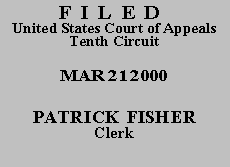

| CARLOS ALBERTO LARA
YUPANQUI; SUYAPA RODRIGUEZ
DE LARA,
Petitioners, v. IMMIGRATION & NATURALIZATION SERVICE, Respondent. |
|
Petitioner Carlos Alberto Lara Yupanqui seeks our review of the Board of Immigration Appeals' (BIA) decision affirming the Immigration Judge's denial of his application for asylum and withholding of deportation under the Immigration and Nationality Act.(**) We conclude, based on our review of the administrative record, the applicable law, and the parties' submissions, that the BIA's decision is supported by substantial record evidence and we affirm.
Petitioner, a Peruvian native and citizen, entered the United States in May 1990 as a business visitor. Petitioner is a professional musician who performs with a musical group that toured internationally before coming to the United States. He overstayed his visa, which expired in March 1991. Thereafter, he applied for asylum and withholding of deportation based on his fear of persecution both by the Sendero Luminoso (the Shining Path), a Peruvian guerrilla group that unsuccessfully attempted to recruit him, and by the Peruvian government, for political opinions allegedly imputed to him by virtue of the Sendero Luminoso's recruitment efforts. Petitioner professes political neutrality.
Asylum and withholding of deportation are the two avenues of relief available to a deportable alien who claims he will be persecuted if deported. See Kapcia v. INS, 944 F.2d 702, 706 (10th Cir. 1991). In order to be eligible for asylum, an alien must first establish refugee status. See id. Thereafter, the Attorney General can exercise her discretion to grant asylum to the otherwise deportable alien. See 8 U.S.C. § 1158(b)(1). In order to qualify for refugee status, an alien must establish "he is unable or unwilling to return to 'any country of such person's nationality . . . because of [past] persecution or a well-founded fear of persecution on account of race, religion, nationality, membership in a particular social group, or political opinion.'" Nazaraghaie v. INS, 102 F.3d 460, 462 (10th Cir. 1996) (quoting 8 U.S.C. § 1101(a)(42)(A)). "[T]he well-founded fear of persecution standard [ ] require[s] a subjective 'fear' component and an objective 'well-founded' component." Kapcia, 944 F.2d at 706. The subjective component is not relevant unless the alien has proved the objective component. See id. It is the applicant's burden to meet this objective component with "credible, direct, and specific evidence in the record." Nazaraghaie, 102 F.3d at 462 (quotation omitted).
In order to be eligible for withholding of deportation, the second avenue of relief, the alien must show "a clear probability of persecution with objective evidence that it is more likely than not that he or she will be subject to persecution upon deportation." Id. at 465 (quotations omitted). This is a more difficult standard to meet than the refugee standard. See id.
In affirming the Immigration Judge's decision, the BIA found that there was no evidence in the record that: (1) the Sendero Luminoso had mistreated petitioner or his family; (2) petitioner was selected for recruitment based on any of his own political opinions; (3) the Sendero Luminoso considered petitioner's decision not to join the movement an expression of opposition; and (4) the government of Peru viewed him as affiliated with that movement. See Admin. R. at 3. Thus, the BIA concluded that petitioner failed to meet his asylum burden to show past persecution or a well-founded fear of future persecution and, consequently, he also failed to meet the higher standard for withholding of deportation. See id. On appeal, petitioner challenges the BIA's conclusion that he failed to show a well-founded fear of persecution based on his political opinion. "The BIA's determination that [petitioner] was not eligible for asylum must be upheld if supported by reasonable, substantial, and probative evidence on the record considered as a whole." INS v. Elias-Zacarias, 502 U.S. 478, 481 (1992) (quotation omitted).
We have reviewed the record, the parties' submissions, and the relevant law. We conclude that the BIA's decision is supported by substantial record evidence and, accordingly, we AFFIRM the BIA's dismissal of the appeal.
Entered for the Court
Circuit Judge
*. This order and judgment is not binding precedent, except under the doctrines of law of the case, res judicata, and collateral estoppel. The court generally disfavors the citation of orders and judgments; nevertheless, an order and judgment may be cited under the terms and conditions of 10th Cir. R. 36.3.
**. Petitioner's wife, Suyapa Rodriquez de Lara, also seeks asylum and withholding of deportation. Because Ms. Rodriguez de Lara's application is derivative of petitioner's application, we address only his directly and refer throughout to petitioner in the singular.